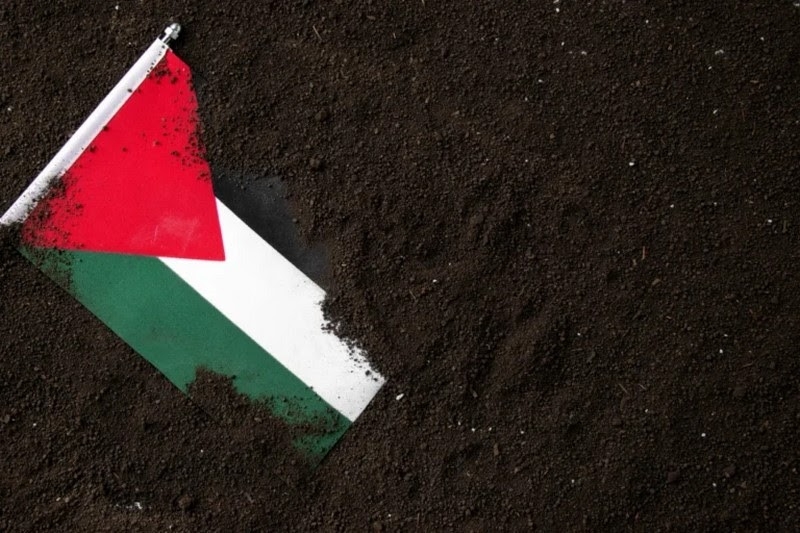- Puppet show enchants Children as Boi Mela comes alive on day 2 |
- DSCC Admin Salam’s drive to make South Dhaka a ‘clean city’ |
- 274 Taliban Dead, 55 Pakistan Troops Killed |
- Now 'open war' with Afghanistan after latest strikes |
- Dhaka's air quality fourth worst in world on Friday morning |
Palestinians Face Second Nakba Amid Silence in ME & The West

Palestine symbol
A GreenWatch Feature
The streets of Gaza are stained with ash and grief—homes flattened, families shattered, a people forced yet again to flee. Philippe Lazzarini, Commissioner-General of UNRWA, has sounded the alarm: the current Israeli offensive in Gaza risks becoming a “second Nakba”—a term steeped in the trauma of 1948, when over 700,000 Palestinians were violently expelled from their homeland. Today, the past is not just remembered—it is being relived.
The Israeli government continues to justify its military aggression under the banner of “security threats.” But this claim falters under scrutiny. Israel is not a vulnerable state struggling for survival; it is the most powerful military force in the region—nuclear-armed, equipped with advanced defense technologies, and backed unconditionally by Western powers. The repeated targeting of humanitarian aid centers, schools, and hospitals cannot be excused as self-defense against a stateless population with no air force, navy, or functioning infrastructure.
The discrepancy between rhetoric and reality raises a disturbing question: is the true aim security, or is it supremacy?
Prime Minister Benjamin Netanyahu has made his aim unambiguous. In September 2024, he stood before the UN General Assembly and unveiled a map of “Greater Israel”—a nation with erased borders, where Gaza and the West Bank no longer exist as distinct entities. One month later, the Hamas-led attack of October 7 gave his government the pretext for a retaliatory campaign that many international observers now describe as ethnic cleansing.
Netanyahu's rejection of the two-state solution is not simply ideological—it is strategic. By pursuing unilateral annexation, his administration seeks to reshape reality itself, bulldozing both geography and diplomacy.
Despite entrenched hostilities, Hamas has signaled willingness to accept a sovereign Palestinian state based on pre-1967 borders. This gesture, however imperfect, reflects a pragmatic turn—one met not with diplomacy but with escalated violence and occupation.
Meanwhile, Netanyahu’s administration dismisses any form of Palestinian sovereignty, even as Israel continues to expand settlements and tighten control over East Jerusalem and the West Bank. The asymmetry is undeniable: one side proposes a political resolution; the other enforces military domination.
In a sobering critique, a Western think tank noted that the Holocaust—a monstrous crime against the Jewish people—cannot serve as a moral blank check for today’s ‘Holocaust’against Palestinians. Using the horror of Hitler’s genocide to justify an ongoing campaign of displacement and destruction distorts historical truth and silences legitimate outrage. Trauma should be a call to empathy, not a license to dehumanize others.
Hope, if it exists, glows faintly in the hearts of younger generations. In the United States and across the globe, public opinion is shifting. Polls reveal rising sympathy for Palestinians and growing resistance to unchecked Israeli militarism. This generational awakening could shape future foreign policies and realign global priorities.
Lazzarini’s warning demands action. If this is truly a second Nakba, then silence is complicity. Israel must abandon its zero-sum calculus and engage with Palestinian leadership—including Hamas—in a process rooted in mutual recognition and shared humanity. One can eliminate Hamas leadership but not its idea of resistance to denial of freedom of statehood and associated rights.
Because peace is not born from rubble. It is carved from compromise, nurtured by justice, and sustained by truth.

